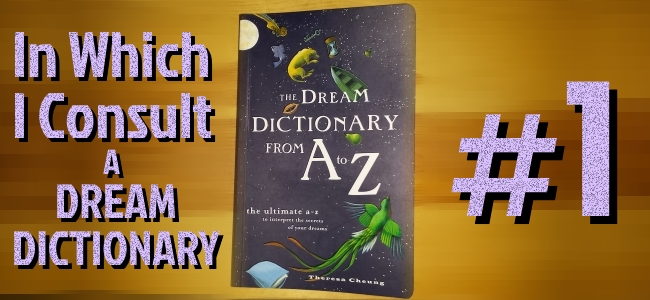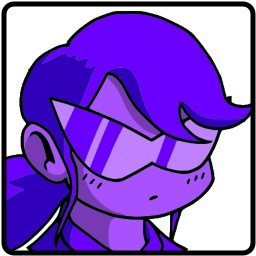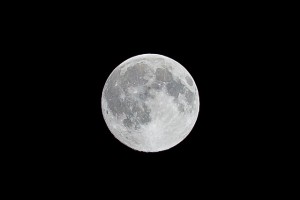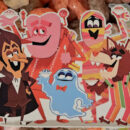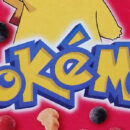Maybe a year or two ago, Ferny bought me this book called The Dream Dictionary From A to Z by Theresa Cheung. I don’t remember if it was for my birthday or Christmas or no particular occasion at all, but it was during a time when I was more actively writing about my weirder dreams on my website.* I flipped through it a few times but, ultimately, it ended up on my shelf, amidst numerous other novels which I have neglected to peruse.
Until now.
Background
Most of the dreams I can remember have been nightmares. I don’t tend to record these as I feel it gives them more power than they deserve. On rare occasions, I have recorded bad dreams that I thought might be worth reviewing, but these were exceptionally rare. Most of the rest of my dreams are stupid, nonsensical, or boring little diversions which I may or may not bother adding to my ongoing dream journal.
But sometimes, just sometimes, I have some really wild dreams that I just have to write about. When they were coherent enough, I even used to turn them into short stories and post them online. For this article, I’ll be linking to three of these dreams, which I’ll expect you to read before continuing (and you’d better do it, because there might be a pop quiz at the end, and, wait a minute, did you come to class without pants on again?). I will then consult Cheung’s Dream Dictionary to ascertain her take on them. While I feel that I’m usually aware of the meaning of my dreams – fears and anxieties, or underlying thoughts or motivations, or just parsing recent events – it should be interesting to read the generalized viewpoints of a dream researcher.
Note: This article was originally 3 pages and a whopping 3200 words long, until Ferny convinced me to change it. It will now be split up into three separate articles, which will be posted over the course of the next few weeks. Follow along each Wednesday if you want to know how it ends… and trust me, you do.
A Brief Overview of the Book
Let’s take a look at this little blurb from the back cover:
Theresa Cheung was born into a family of psychics and spiritualists. She was irresistibly drawn to the psychic world during childhood and gave her first professional Tarot card reading at the age of fourteen. Since gaining a master’s from King’s College Cambridge, she has been the author of numerous books covering New Age subjects, popular psychology, and parapsychology.
“Oh boy,” I thought to myself, both when I initially received the book and when I held it in my hands moments ago. “There’s no dancing around the subject here. We all know where this is heading. It’s time to find out how badly I want the D.”
But, after paging through the preface and introduction, I’m actually inclined to believe that maybe this isn’t just some huge tome of Freudian tripe. Within the first 25 pages of the book is essentially a description of our knowledge of the sleep process and a straightforward history of dream research, from ancient to modern times. Cheung brings up various theories, some not entirely scientific, but doesn’t seem to nail any of them down as absolute truths, which is admittedly a pretty rational way to approach the topic. She notes when “most dream researchers” tend not to believe in, say, precognitive dreams, but lays out the details for those who want to believe (or who are just interested in theories) anyway (xix).
Even on her website, Cheung, pictured next to an unidentified woman in a purple dress, does not claim to be a psychic or anything of that nature. I’m not saying I’m going to buy everything that’s in this book – trust me, I’ve already seen some of it, and it seems to read into things too much – but it does make the whole thing a little more approachable to everyone. It feels about as unbiased and objective as a book about analyzing your dreams could possibly be.
The other, like, 95% of the book is exactly what it says on the cover: a dream dictionary. You just pick out a significant element in your dream, flip to that entry in the book, and read what the author has to say about it. It’s 549 pages long, so while it isn’t necessarily comprehensive (and reasonably cannot be), it’s rather hefty.
For the rest of this series, I think I’ll just let the book speak for itself.
[nextpage]
Dream A – Moon Party
To begin with, click here to read this dream:
Moon Party (Dream Log #6, 2012)
I picked a relatively short and simple dream to start with. For the purposes of utilizing The Dream Dictionary, I can condense it into four elements:
- Dancing
- Loneliness
- Moon
- Party
Sadly, “blissful and willful ignorance” couldn’t be found within the book.
The moon is a desolate rock. It is romantic if you are into asphyxiation, I guess.
Dancing
Right off the bat, we’re introduced to what I believe to be the primary flaw in this book, which is that it typically assumes that every action or event in your dream is happening specifically to you. I wasn’t dancing in the dream; other people were. This entire entry focuses on what my dream would mean if I were dancing, so I have to just throw it out the window. Of note, however, is that it did include a sub-entry on disco dancing, which is what I always assumed was going on in the dream. “A dream about a discotheque is a sign that the dreamer may be feeling excited but confused about a new relationship or project,” Cheung writes (164). Yeah, no. It’s about people dancing instead of solving their problems.
Loneliness
I might as well get this one out of the way since it factors into many of my dreams. While I was traveling with a group of people in the dream, I was undoubtedly alone. “To dream that you are alone in a crowd may imply that you are isolated from those around you, while being alone in a landscape may suggest that you prefer to make decisions by yourself” (325). Well, both of those are applicable to the dream, and to myself, so good job, book. The score is 1 – 1. Interestingly, in the very next sentence, it states that being an astronaut in a dream indicates “deep feelings of being alone”… should I award bonus points for that astute prediction? It was, admittedly, very astute.
Moon
As expected, Cheung’s interpretation of the moon is decidedly favourable, claiming it as a symbol of feminine creativity and proposing such issues as introspection or child-bearing desires as the reasons for a moonbound dream (345-346). Honestly, the moon just makes me anxious. Even before I read Lovecraft and the works he’s inspired, space and the rocks that litter it seemed lonely and foreboding, a dead and ancient void. I’m pretty sure I’ve only ever had nightmares about being on the moon.
Party
“If… you aren’t enjoying yourself for some reason, then it may be an indication that you have some doubts about the social skills you possess” (378). Oof, ouch! Okay, fine. That wasn’t the focus of the dream, but fine. You win this round, Cheung…
To Be Continued…
Next week, I’ll reveal what happened when I tried using the book for a more complicated dream. The results are quite different, I assure you. Stay tuned, dear readers~
*Update 3/16/2017: At the time of this writing, my website was organized to showcase various writings and comics. My written works are now tucked away in the depths of the site, and are not linked on the site proper. You can find the new links for the relevant dream logs within this articles, though. The new versions are pure text documents.
